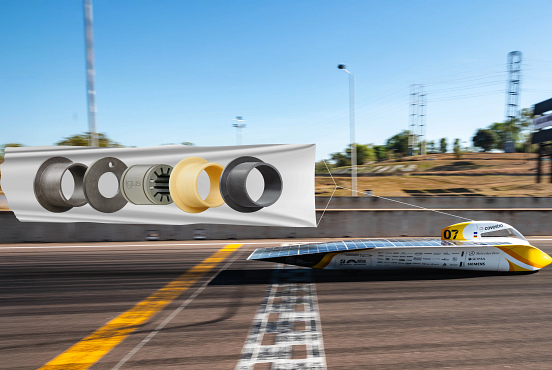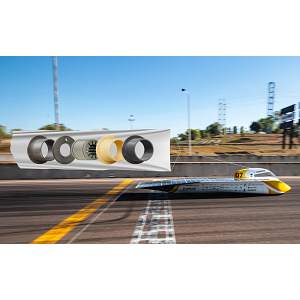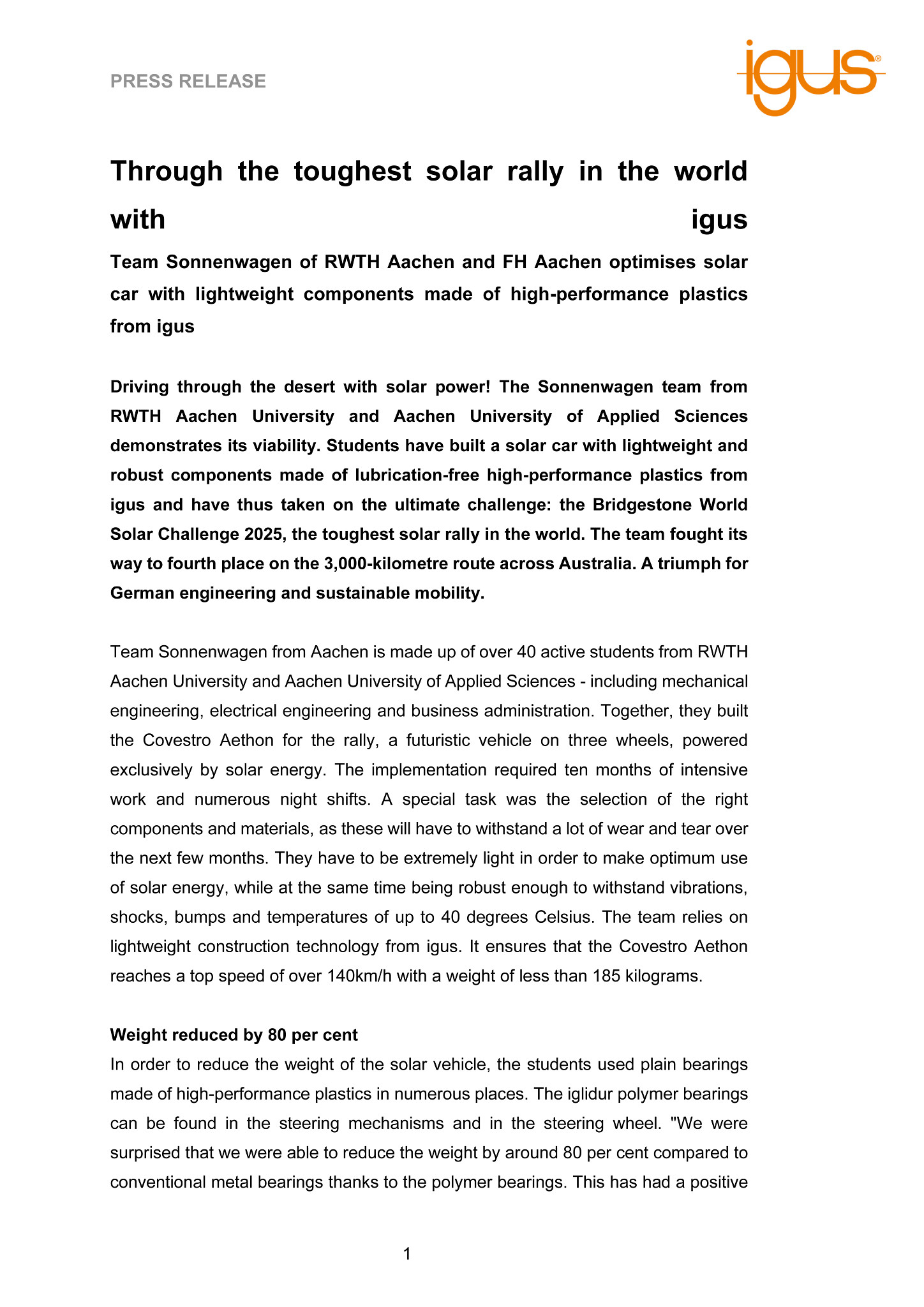Through the toughest solar rally in the world with igus
September 5, 2025
Team Sonnenwagen of RWTH Aachen and FH Aachen optimises solar car with lightweight components made of high-performance plastics from igus

Driving through the desert with solar power! The Sonnenwagen team from RWTH Aachen University and Aachen University of Applied Sciences demonstrates its viability. Students have built a solar car with lightweight and robust components made of lubrication-free high-performance plastics from igus and have thus taken on the ultimate challenge: the Bridgestone World Solar Challenge 2025, the toughest solar rally in the world. The team fought its way to fourth place on the 3,000-kilometre route across Australia. A triumph for German engineering and sustainable mobility.
Team Sonnenwagen from Aachen is made up of over 40 active students from RWTH Aachen University and Aachen University of Applied Sciences – including mechanical engineering, electrical engineering and business administration. Together, they built the Covestro Aethon for the rally, a futuristic vehicle on three wheels, powered exclusively by solar energy. The implementation required ten months of intensive work and numerous night shifts. A special task was the selection of the right components and materials, as these will have to withstand a lot of wear and tear over the next few months. They have to be extremely light in order to make optimum use of solar energy, while at the same time being robust enough to withstand vibrations, shocks, bumps and temperatures of up to 40 degrees Celsius. The team relies on lightweight construction technology from igus. It ensures that the Covestro Aethon reaches a top speed of over 140km/h with a weight of less than 185 kilograms.
Weight reduced by 80 per cent
In order to reduce the weight of the solar vehicle, the students used plain bearings made of high-performance plastics in numerous places. The iglidur polymer bearings can be found in the steering mechanisms and in the steering wheel. “We were surprised that we were able to reduce the weight by around 80 per cent compared to conventional metal bearings thanks to the polymer bearings. This has had a positive effect on the energy efficiency of the vehicle,” says Charlotte Teckentrup from Team Sonnenwagen Aachen. “At the same time, the polymer bearings are robust and wear-resistant despite their lightweight. They also have dampening specifications, so we were able to improve the driving experience.” Another advantage: The polymer bearings enable low-friction dry operation without grease. As a result, the components are less susceptible to contamination, which could reduce smoothness during the rally and, in the worst case, lead to failures.
Clawing back to fourth place despite a breakdown
On August 24, things got exciting for RWTH Aachen University and Aachen University of Applied Sciences. Team Sonnenwagen started from pole position in Darwin, Australia, after a successful qualifying session. Victory seemed possible. But then they had to contend with a setback. An electrical fault forced the solar-powered vehicle to stop, allowing over ten teams to pass. Despite this setback, the team managed to cross the finish line in Adelaide in fourth place after 3,026 kilometres, a journey time of 36.5 hours and an average speed of 85km/h. “Team Sonnenwagen has shown what true engineering is all about! Not giving up, solving problems and making the best of the situation,” says igus CEO Tobias Vogel. The company has been supporting the team with components and expertise since it was founded in 2015. “Every kilometre driven by the Sonnenwagen team brings us a step closer to new possibilities for emission-free mobility of tomorrow.”
Find out more about igus plain bearing technology at:
https://www.igus.eu/plain-bearing



